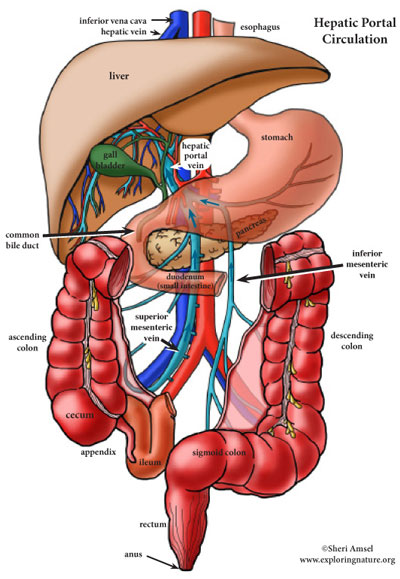BACKGROUND
Hepatic encephalopathy is a decline in brain function that occurs as a result of severe liver disease. In this condition, your liver can’t adequately remove toxins from your blood. This causes a buildup of toxins in your bloodstream, which can lead to brain damage. It is a condition that causes confusion and other thinking problems. It can also cause changes in a person’s mood, sleeping patterns, and body movements.
Hepatic encephalopathy can be acute (short-term) or chronic (long-term). In some cases, a person with hepatic encephalopathy may become unresponsive and slip into a coma.
DISEASE OCCURRENCE IN POPULATION
Subtle signs of hepatic encephalopathy are observed in nearly 70% of patients with cirrhosis. Symptoms may be debilitating in a significant number of patients. Overt hepatic encephalopathy occurs in about 30-45% of patients with cirrhosis. It is observed in 24-53% of patients who undergo portosystemic shunt surgery.
According to one study conducted in Gujranwala, Pakistan, prevalence of HE was noted as more than 60% and main precipitating factor for hepatic encephalopathy was underlying infection. Diabetes mellitus is important co-morbidity factor observed in more than half of the patients. Majority of the patients present in grade 1 have good outcome. Expiry rate is higher in patients presenting with grade 3 and 4 hepatic encephalopathy and with Child-Pugh Score of class C.

RISK FACTORS
Most people who get this condition also have a type of liver disease called “cirrhosis.” In people with cirrhosis, hepatic encephalopathy can be caused by:
- Bleeding in the stomach, intestines, or other parts of the digestive tract
- An infection
- Eating too much protein
- Constipation
- Medications that suppress your immune system
- Worsening of the liver disease
- Kidney problems
- Dehydration
- Hypoxia, or low oxygen levels
- Recent surgery or trauma
- Medications that suppress your central nervous system, such as barbiturates or benzodiazepine tranquilizers
- Electrolyte imbalance, especially a decrease in potassium after vomiting or taking diuretics
SIGN AND SYMPTOMS
Symptoms include:
- Being confused
- Memory problems
- Mood changes
- Trouble speaking, drawing, and writing clearly
- Problems with sleep – Some people have trouble falling asleep. Others sleep too much.
- Moving more slowly than normal
- Flapping hands
People with hepatic encephalopathy usually have symptoms of serious liver disease, too. These include:
- A swollen belly and legs
- Fluid buildup in the lungs, which can cause trouble breathing
- Yellow skin and a yellow tint to the whites of the eyes – This is called “jaundice.”
- Red palms
- Shrunken muscles
- Tiny blood vessels that can be seen just under the skin
- Bad breath
DIAGNOSTIC TESTS
Doctors can do many different tests. Some are used to make sure you do not have problems besides hepatic encephalopathy. The tests include:
- Blood tests
- Tests for your memory and thinking: The doctor or nurse will ask some questions to check your memory and thinking. For example, the doctor might have you do simple number and word tests.
- An EEG: This test measures electrical activity in your brain and records your brain wave patterns.
- A CT or MRI scan of your brain: These are imaging tests that can create pictures of your brain.
TREATMENT OPTIONS
The treatment depends on what is causing the problem. Treatment can include:
- Taking medicine to have more bowel movements: If you take one of these medicines, such as “lactulose,” your doctor or nurse will explain how to figure out the right amount. For example, you will need to adjust your dose until you are having 2 to 3 bowel movements a day.
- Taking antibiotic medicines
- Changing your diet: This might involve eating small amounts throughout the day, instead of 2 or 3 big meals. Your doctor or nurse can also help you figure out if you should change the foods you eat.
- Stopping medicines that might be causing the problem
PRECAUTIONS
You can lower your chances of getting hepatic encephalopathy by asking your doctor or nurse what types of foods you should eat. You should also always check with your doctor or nurse before starting any new medicines.
The best way to prevent hepatic encephalopathy is to prevent or manage liver disease. Chances of getting liver disease can be lowered by taking these steps:
- Avoid alcohol or consume it in moderation.
- Avoid high-fat foods.
- Maintain a healthy weight.
- Don’t share contaminated needles.
To avoid getting viral hepatitis:
- Wash your hands well after using the bathroom or changing a diaper.
- Don’t share contaminated needles.
- Avoid close contact with people diagnosed with viral hepatitis.
- Get vaccinated against hepatitis A and hepatitis B.
REFERENCES
Poordad FF. Review article:
the burden of hepatic encephalopathy. Aliment Pharmacol Ther. 2007 Feb. 25 Suppl 1:3-9.
